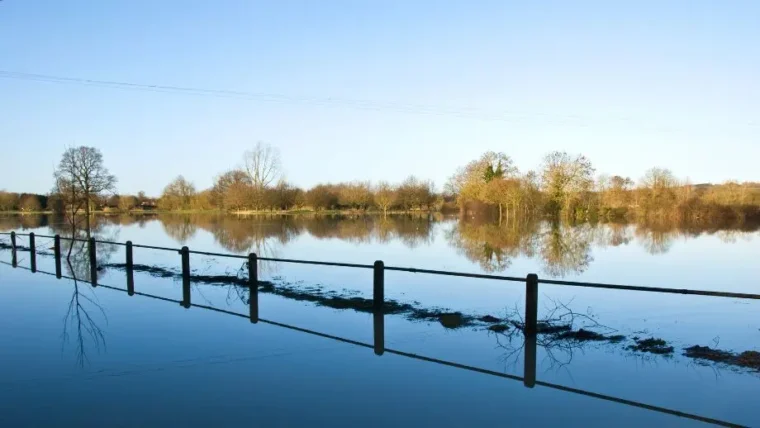Fortnightly Bulletin – 11th March 2024
11 March 2024

Guidance
Storage of non-hazardous waste collected at transport hubs: RPS 240
The Environment Agency’s (EA) Regulatory Position Statement (RPS) on when you can collect non-hazardous waste at a transport hub without an environmental permit for a waste operation has been updated to the latest template.
The RPS does not apply to any other legal requirements.
This RPS applies to the collection of non-hazardous waste produced:
- by passengers on public transport networks
- at separate premises within a single identifiable transport hub, including train and bus stations
- ports, airports and associated depots
This RPS does not change your legal requirement to have an environmental permit for a waste operation when you collect non-hazardous waste at a transport hub.
However, the EA will not normally take enforcement action against you if you do not comply with this legal requirement, provided that:
- your activity meets the description set out in this RPS
- you comply with the conditions set out in this RPS
In addition, your activity must not cause (or be likely to cause) pollution of the environmental or harm to human health and must not cause the following:
- cause a risk to water, air, soil, plants or animals
- cause a nuisance through noise or odours
- adversely affect the countryside or places of special interest
Conditions you must comply with include the following:
- Treat and store the waste in a secure place at the transport hub
- Take all reasonable precautions to prevent the waste from escaping and make sure members of the public cannot access the waste
- Only store waste you are collecting for onward transportation
- Store liquid waste in a leak-proof container with secondary containment, such as a bund or any other system that prevents the waste from escaping
- Keep records for two years to show that you have complied with this RPS and make the records available to the Environment Agency on request
You must not:
- collect international catering waste subject to Animal and Plant Health Agency controls
- mix different types of wastes together, for example, separately collected paper and plastics
- treat food waste
- change the chemical or biological nature of the waste
- store more than 200m3 of non-liquid or 1,000l of liquid waste at any site at any one time
The EA intends to review this RPS by 8 January 2027. The RPS can be withdrawn or amended before the review date, if considered necessary. This includes where the activity that this RPS relates to has not changed, and advises to check back from time to time, including at and before the review date, to see if this RPS still applies.
The RPS will remain in force until it is removed from GOV.UK or is otherwise identified as having been withdrawn.
Source: Gov.uk
For the full guidance, click here
Articles of Interest
Derby waste handler becomes ‘first to process’ washroom waste
A Derby based firm is to become the ‘first to process’ washroom waste using an innovative green waste management technology, thanks to a £1.25m investment.
The commercial waste management and recycling organisation specialises in providing complete, independent waste solutions to businesses throughout the East Midlands and the rest of the UK.
The company has signed an eight-year contract with biotechnology business Advetec, to convert offensive washroom waste into Solid Recovered Fuel (SRF), supporting its bid to send zero waste to landfill.
The waste management firm will process up to 4,000 tonnes of offensive washroom waste, using Advetec’s largest aerobic biodigester, the XO22, at a facility in Derby.
Source: Circular for Resource and Waste Professionals
For the full article, click here
New construction waste reuse hub to open in Wolverhampton
A hub, where surplus construction waste will be reused and sold, is set to open in Wolverhampton, in a bid to reduce waste to landfill.
The Reuse Hub will be run by The Rebuild Site CIC and the All Saints Action Network (ASAN) charity, thanks to a £100,000 investment from the West Midlands Combined Authority (WMCA).
The hub will allow members of the public to buy bricks, tiles, flooring, and other building supplies at a discounted price.
The hub is set to open this summer and will receive left over materials from construction sites, builders’ merchants, and wholesalers.
Within the first year of opening, the hub is expecting to divert around 600 tonnes of materials away from landfill.
Source: BBC
For the full article, click here
Prosecutions and Fines
Waste firm to pay £68,500 for liquid cyanide leak in Derbyshire
The EA has successfully prosecuted a waste transport company for causing liquid cyanide to leak from a lorry at an industrial estate in Heanor, Derbyshire.
Nottingham Crown Court were told how liquid escaped from a ruptured tank on a lorry into nearby ponds, killing fish. The incident occurred on 6February 2018, when a container was ruptured as the driver started moving them around, having borrowed a forklift truck. Hundreds of litres of liquid, which contained diluted cyanide, began to escape going onto the floor before entering the drainage system and natural waterways.
The transport company was fined £16,000 and ordered to pay costs of £52,500 by Nottingham Crown Court on Wednesday 21 February 2024.
Source: Gov.UK
For the full article, click here
Construction company fined £100k for oil spill
Two contractors have been ordered to pay more than £180,00 in fines and costs for polluting ground water, with 11,000l of diesel, during the redevelopment of a hospital in Dorset.
A construction company and its subcontractor were sentenced at Bournemouth Crown Court on 12 January 2018 after pleading guilty to an offence under the Environmental Permitting (England and Wales) Regulations 2010 (EPR 2010).
The construction company were commissioned to carry out the redevelopment of a hospital in February 2012. The subcontractor was appointed by the construction company to drain and remove oil from an oil supply line in the hospital grounds. However, the oil escaped from a poorly made connection in the oil supply pipework, which failed during routine testing of heating systems at the hospital in November 2014. The oil spillage polluted groundwater.
The construction company was fined £100,000 with £30,301 costs, and the subcontractor was fined £10,200 with £42,851 costs, under EPR 2010.
Source: The Construction Index
For the full article, click here
Yorkshire tops £1.7m Enforcement Undertakings for 2023
Penalties topping £1.7m were issued to companies across Yorkshire in 2023 for environmental offenses.
An Enforcement Undertaking (EU) is a voluntary offer made by companies and individuals to make amends for their offending, including donations to an environmental charity to carry out environmental improvements in the local area. The EUs will go to charities including Yorkshire Wildlife Trust, The Aire Rivers Trust and Yorkshire Dales Rivers Trust to support their work across the region.
The lasted round of penalties, agreed between June-October 2023 included:
- A construction company has agreed to donate £75,000 to the Aire Rivers Trust for work being carried out by Friends of Bradford Beck, after two offenses of silt pollution that occurred on 4 December 2020 and 26 November 2021. Contaminated water containing silt was washed into Fagley Beck
For the full article, click here
Civil Sanctions imposed by the EA: 1 January to 31 May 2023
A Variable Monetary Penalty (VMP) is a proportionate monetary penalty the EA can impose for more serious cases of non-compliance.
VMPs can be issued for offenses including:
- when there is evidence of negligence or mismanagement
- when there is an environmental impact
- to remove an identifiable financial gain or saving as a result of a breach
- where it is not in the public interest to prosecute
A demolition company in Greater Manchester was issued a VMP, for the amount £625, in August 2022, for causing waters to be poisonous or injurious to fish or the spawning grounds, spawn or food of fish. The demolition company put dredging spoils into the River Tame at Portland Basin, Dukinfield, Greater Manchester in November 2018. The company also paid EA costs of £2,441.23.
Source: Gov.UK
For the full article, click here.
Events
Natural Capital: Practical Application
26th March 12:00 – 13:00
This webinar will focus on sharing lessons learned from applying natural capital approaches to delivering nature-positive projects on the ground. The webinar will include insights from a selection of case study projects on how using a natural approach informed design, planning and delivery.
Source: IEMA








